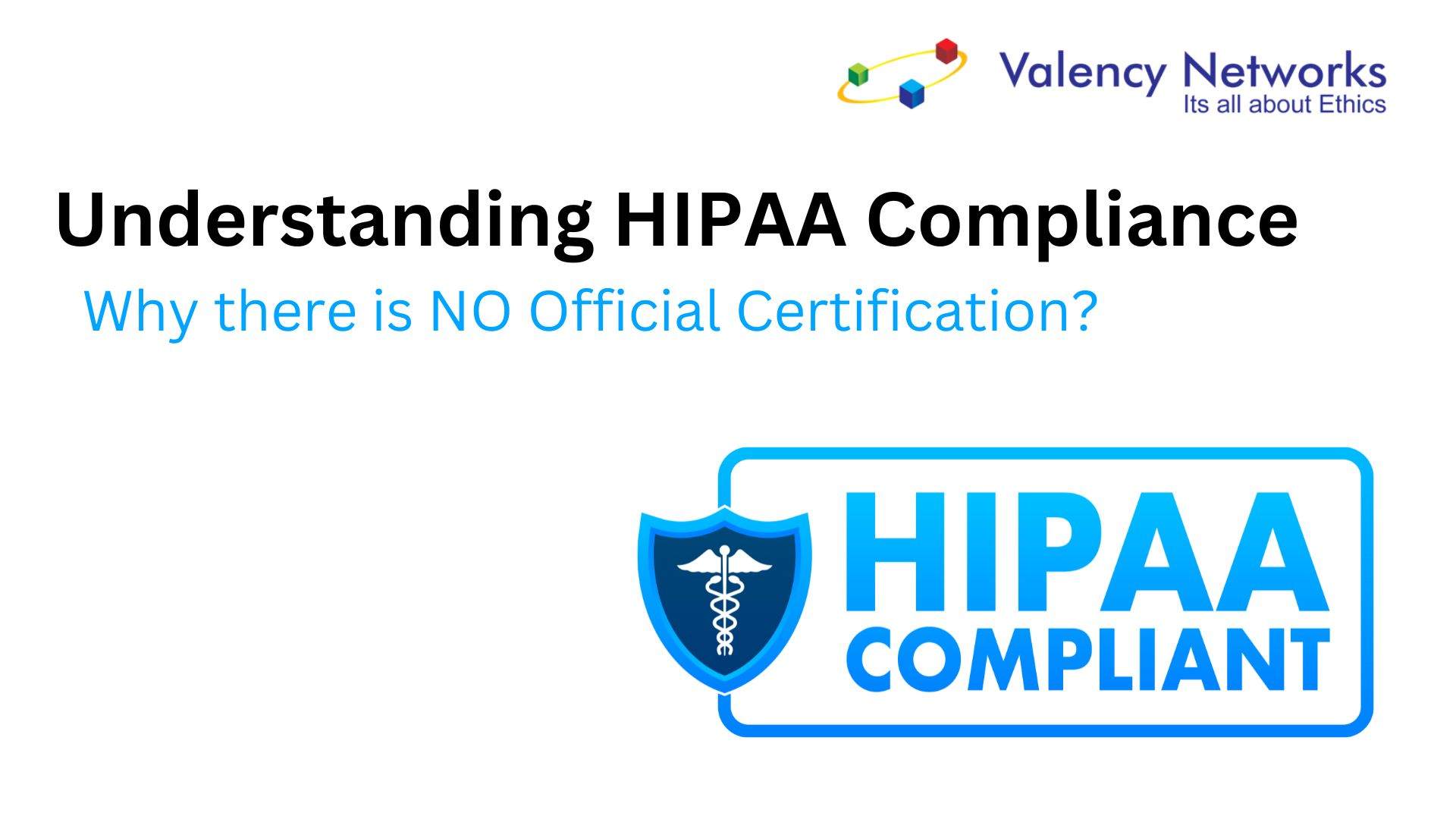- DORA Compliance – A Complete Guide by Valency Networks - 31/01/2025
- Is ICMP Timestamp Request Vulnerability worth considering - 31/12/2024
- Understanding Threat Intelligence in ISO 27001-2022 - 21/11/2024
When dealing with HIPAA (Health Insurance Portability and Accountability Act) compliance, many organizations and healthcare providers often find themselves confused about certification. As a provider of HIPAA implementation services, you may encounter clients who request a formal certificate of HIPAA compliance after an audit or assessment. However, it is crucial to understand—and communicate to your clients—that there is no official HIPAA certification issued by any governmental or regulatory body.
What is HIPAA Compliance?
HIPAA is a U.S. law designed to provide privacy standards to protect patients’ medical records and other health information provided to health plans, doctors, hospitals, and other healthcare providers. Compliance with HIPAA requires organizations to implement a set of security measures to safeguard sensitive patient data. These include administrative, physical, and technical safeguards as outlined in the HIPAA Security Rule.
The Misconception About HIPAA Certification
One of the most common misconceptions is that there is a formal certification process for HIPAA compliance. However, the U.S. Department of Health and Human Services (HHS) clarifies that no third party can provide a HIPAA certification that is recognized by the U.S. government. HIPAA compliance is a self-regulatory process, where organizations are expected to assess their own policies, conduct risk analyses, and implement the necessary safeguards to protect patient data.
According to the HHS FAQ on HIPAA certification, while organizations may use third-party services to conduct audits or risk assessments, these services cannot grant an official certificate of HIPAA compliance. Rather, they can help organizations understand their compliance status and identify areas for improvement. The excerpt from HHS website is provided below (https://www.hhs.gov/hipaa/for-professionals/faq/2003/are-we-required-to-certify-our-organizations-compliance-with-the-standards/index.html).
Question:
Are we required to “certify” our organization’s compliance with the standards of the Security Rule?
Answer:
No, there is no standard or implementation specification that requires a covered entity to “certify” compliance. The evaluation standard § 164.308(a)(8) requires covered entities to perform a periodic technical and non-technical evaluation that establishes the extent to which an entity’s security policies and procedures meet the security requirements. The evaluation can be performed internally by the covered entity or by an external organization that provides evaluations or “certification” services. A covered entity may make the business decision to have an external organization perform these types of services. It is important to note that HHS does not endorse or otherwise recognize private organizations’ “certifications” regarding the Security Rule, and such certifications do not absolve covered entities of their legal obligations under the Security Rule. Moreover, performance of a “certification” by an external organization does not preclude HHS from subsequently finding a security violation.
Communicating This to Your Clients
As a company that performs HIPAA implementation and audits, it’s important to educate your clients about the realities of HIPAA compliance. You can guide them towards conducting comprehensive risk assessments and implementing robust privacy and security measures, rather than focusing on obtaining a non-existent certification. Directing your clients to the official HHS website or providing them with an overview of what HIPAA compliance entails can help set realistic expectations and promote a culture of continuous improvement in data protection practices.
By understanding that HIPAA compliance is about ongoing risk management and process improvement rather than a one-time certification, organizations can better protect sensitive health information and avoid potential violations.

